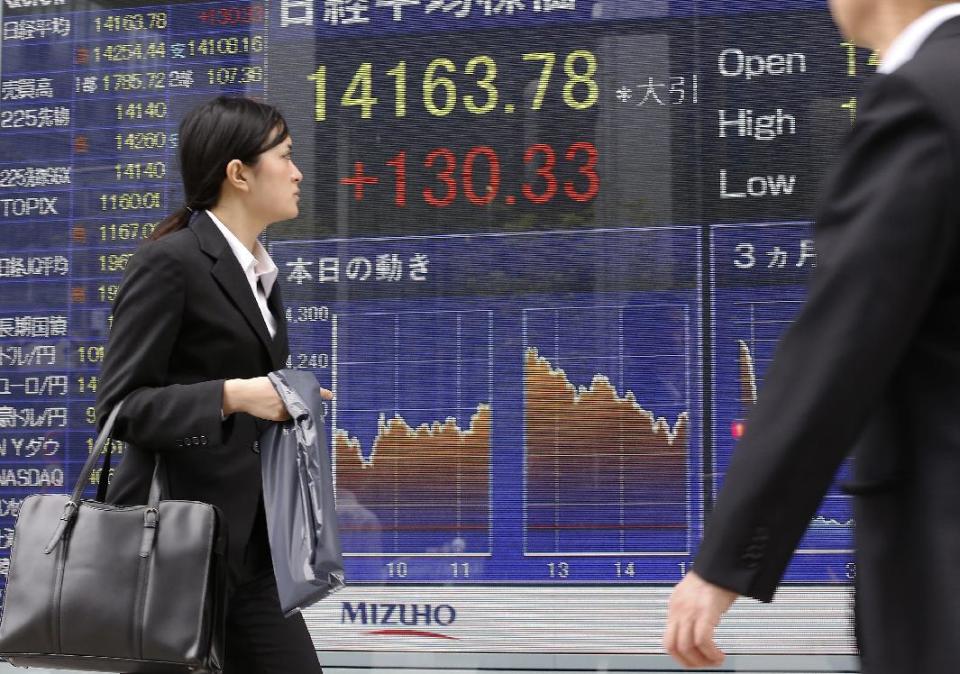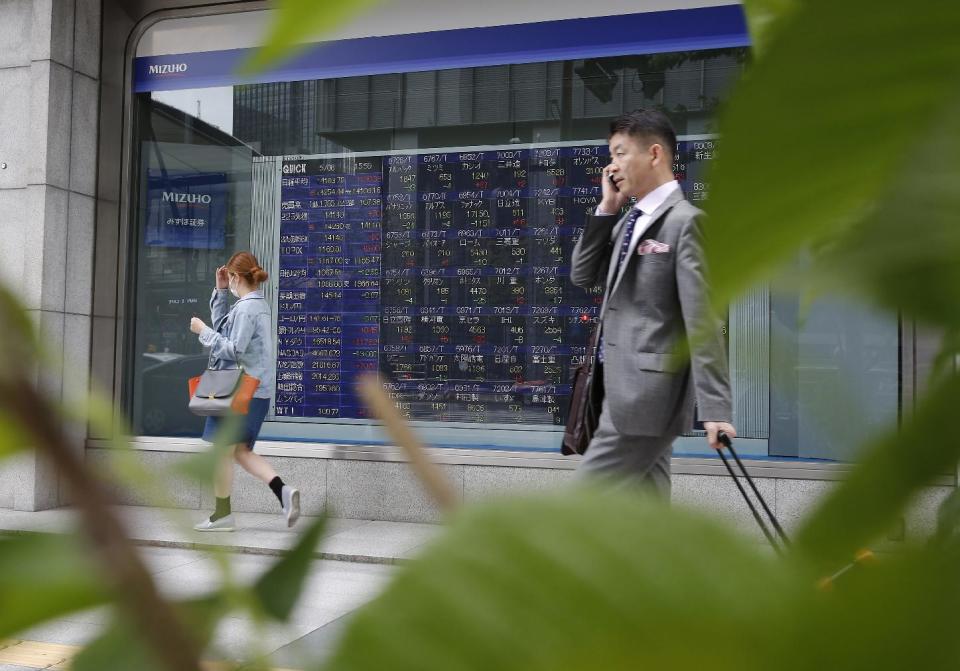Asia stock on wait-and-see mode amid uncertainty
TOKYO (AP) — Asian shares moved within a narrow range in Friday morning trade amid a widespread wait-and-see attitude with uncertainty on Wall Street and a slew of earnings reports in Japan.
The Nikkei 225 stock index, the major barometer for the Tokyo Stock Exchange, gained 0.3 percent in early trading to reach 14,207.08. The Kospi edged up 0.1 percent to 1,953.27.
Market players in Asia were also closely watching Chinese economic data to be released Friday.
Overnight on Wall Street, shares finished mostly lower as investors assessed the latest batch of U.S. company earnings and sold utility and energy stocks.
The Standard & Poor's 500 index fell 0.1 percent to 1,875.63. The Dow Jones industrial average edged up 0.2 percent to 16,550.97. The Nasdaq composite lost 0.4 percent to 4,051.50.
The big news in Europe overnight were comments from the European Central Bank's president, Mario Draghi, who gave a strong hint that the bank may ease its monetary policy next month, sending the euro on a slide.
Though the ECB kept interest rates unchanged, Draghi said the bank's governing council was ready to do more, possibly in June, to shore up the recovery and prevent prices from falling. Inflation in the 18-country eurozone stands at an annual rate of 0.7 percent, way below the ECB's target of just below 2 percent.
He said the 24-member council was "dissatisfied about the projected path of inflation" and "is not resigned to have too low inflation for too long a time." And to reiterate his dovish tone, he said the council "would be comfortable with acting next time" when it will be armed with new staff inflation forecasts.
"The key was that just as it appeared that the euro might hit $1.40, Draghi said the magic words regarding acting in June and the currency weakened," said Gary Jenkins, an analyst at ING Capital.
Following his comments, the euro was down 0.4 percent on the day at $1.3857.
It was trading at about the same level in Asia early Friday at $1.3836. The dollar was almost unchanged against the yen as well at 101.64 yen.
The recent high value of the euro — it nearly breached the $1.40 mark for the first time since November 2011 earlier during Draghi's remarks — is one of the reasons why inflation is low.
A high currency can rein in economic activity by making exports more expensive and making imports, such as energy, cheaper. Though the ECB does not target an exchange rate, cutting interest rates or some other type of stimulus measure could reduce the value of the euro.
Very low inflation, or a period of falling prices, also known as deflation, can derail a recovery by prompting consumers to delay purchases in the hope of bargains down the line.
Stocks in Europe weren't affected too much by Draghi as the focus remained on a vow from Federal Reserve Chair Janet Yellen to maintain low interest rates until the U.S. job market is healthy.
Germany's DAX was up 0.9 percent at 9,601 while the CAC-40 in France rose 1.2 percent to 4,501. Britain's FTSE 100 was up 0.5 percent at 6,832.


